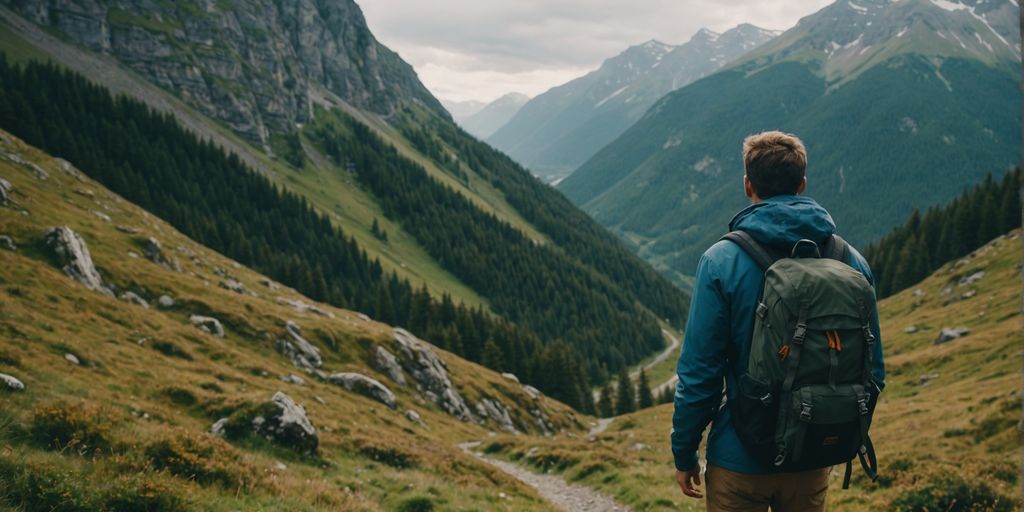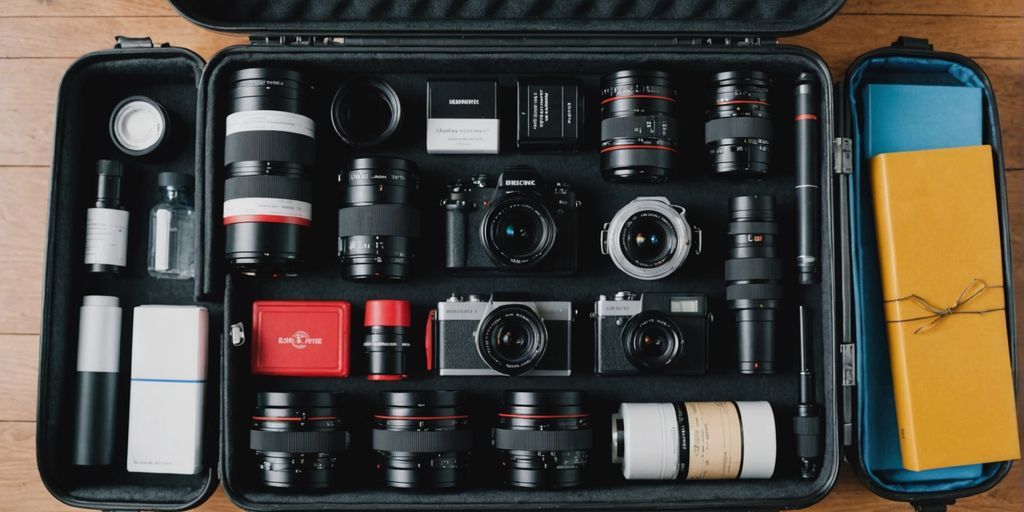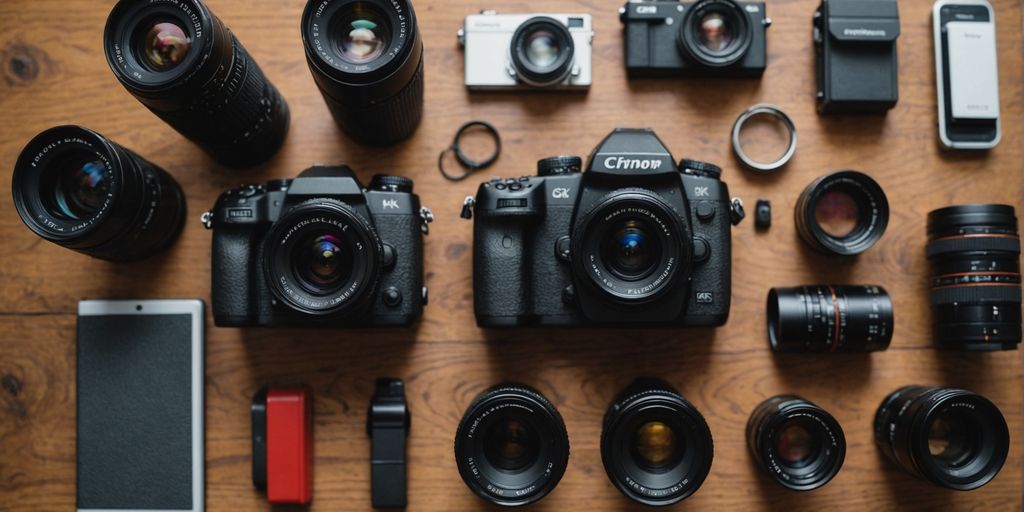Traveling alone can be an amazing adventure, but it’s important to stay safe. Whether you’re exploring a new city or hiking in the mountains, knowing how to protect yourself is key. This guide offers tips to help solo travelers stay safe and enjoy their trips to the fullest.
Key Takeaways
- Always research your destination before you go, including crime rates and local customs.
- Pack important safety items like a first aid kit, safety gadgets, and copies of important documents.
- Choose secure accommodations and be aware of emergency exits and how to use room safes.
- Use trusted public transportation services and avoid traveling at night when possible.
- Keep in touch with loved ones through regular check-ins and share your itinerary with them.
Choosing Safe Destinations
When planning a solo trip, it’s crucial to choose destinations that prioritize safety. Researching your destination thoroughly can make a significant difference in your travel experience.
Packing Essentials for Safety
When traveling solo, packing the right items can make a big difference in your safety and peace of mind. Here are some essentials to consider:
Important Documents
Always carry copies of your important documents such as your passport, travel insurance, and emergency contact information. It’s also wise to have digital copies stored securely online.
Safety Gadgets
Invest in safety gadgets like a portable door lock, a whistle, and a personal alarm. These items can provide an extra layer of security whether you’re in your hotel room or out exploring.
First Aid Kit
A well-stocked first aid kit is crucial. Include basics like band-aids, antiseptic wipes, and any prescription medications you might need. Don’t forget to pack hand sanitizer and face masks to stay healthy on the go.
Staying Safe in Accommodations
When traveling solo, choosing the right place to stay is crucial for your safety. Look for hotels with security features and avoid ground floor rooms. Always let someone know where you’re staying and trust your instincts.
Selecting Secure Hotels
When possible, reserve a room above the ground floor but not too far from the lobby and hotel amenities. Once you’ve checked in, keep your door locked with the security chain fastened when in the room, and don’t answer the door if you are not expecting hotel staff or visitors.
Using Room Safes
Use the security lock and lock important items in the room safe. When you leave your room, leave the TV and a light on, if possible. Put out the “do not disturb” sign to suggest that there is someone in the room.
Emergency Exits Awareness
Familiarize yourself with the emergency exits and routes. Knowing the quickest way out can be a lifesaver in case of an emergency. Always have a small flashlight handy in case of a power outage.
Navigating Public Transportation
Using public transportation can be a great way to explore a new city, but it’s important to stay safe while doing so. Familiarize yourself with the local transit system before you go. Know how safe it is, how much the fares are, and the basic routes you’ll be taking. This will help you feel more comfortable and less overwhelmed.
Using Trusted Services
When using public transportation, always opt for trusted services. If you’re taking a taxi, make sure it’s licensed. Avoid pirate cabs at all costs. If you choose to use ride-sharing apps, share your ride details with a trusted person.
Avoiding Night Travel
Try to avoid traveling at night if possible. If you must, stick to well-lit areas and busy routes. Sometimes, taking an overnight bus or flight is unavoidable, but be aware of your arrival and departure times.
Keeping Valuables Secure
Keep your valuables secure while using public transportation. Use a money belt or a hidden pouch to store your important documents and cash. Always be aware of your surroundings and keep an eye on your belongings.
Staying Connected with Loved Ones
Staying connected with your loved ones while traveling solo is crucial for your safety and their peace of mind. Regular check-ins can help ensure someone always knows your whereabouts.
Regular Check-Ins
Make it a habit to check in with family or friends at regular intervals. This can be done through phone calls, text messages, or social media updates. Keeping in touch not only keeps you safer but also reduces homesickness.
Sharing Itinerary
Before you leave, share your travel plans with a trusted person. This includes your itinerary, hotel reservations, and any planned activities. This way, someone knows where you are supposed to be at any given time.
Using Tracking Apps
Consider using tracking apps like Life360 or Google Maps to share your location with a select few. This can be especially useful in case of an emergency. These apps allow your loved ones to know your exact location, providing an extra layer of security.
Blending In with Locals
When traveling alone, it’s important to blend in with the locals to avoid drawing unnecessary attention. Blending in can minimize the risk of unwanted situations and make your travel experience more enjoyable.
Handling Emergencies
When traveling alone, it’s crucial to be prepared for any unexpected situations. Knowing what to do in an emergency can make all the difference. Here are some essential tips to help you handle emergencies effectively while on your solo adventure.
Night Safety Tips
When traveling alone, nighttime can present unique challenges. Here are some tips to help you stay safe after dark.
Sticking to Well-Lit Areas
Always choose well-lit, populated areas when walking at night. Avoid deserted areas and stick to busy streets. This can help you stay visible and deter potential threats.
Avoiding Excessive Alcohol
While it might be tempting to enjoy a few drinks, it’s important to stay in control. Drinking too much can impair your judgment and make you more vulnerable. Be cautious and know your limits.
Using Ride-Sharing Apps
Ride-sharing apps can be a safer alternative to walking or using public transportation at night. Make sure to verify the driver’s details and share your trip with a friend or family member. This way, someone always knows your whereabouts.
Health Precautions
Staying Hydrated
Staying hydrated is crucial when traveling. Always carry a refillable water bottle and be aware of the safety of local tap water. In some places, it’s best to stick to bottled water to avoid any potential health issues.
Eating Safely
When it comes to food, it’s wise to avoid street food and opt for dining establishments with good reviews. Make sure to wash your hands or use hand sanitizer before eating. This simple step can help you avoid many common illnesses.
Managing Medical Conditions
If you have any medical conditions, make sure to bring enough prescription medication to last your entire trip. It’s also a good idea to carry a copy of your prescriptions. Visit your doctor before you leave to ensure you have all necessary inoculations and health advice for your destination.
Money Safety Tips
Using Credit Cards Wisely
When traveling, use credit cards for most of your purchases. They offer better protection against fraud compared to cash. Notify your bank about your travel plans to avoid any unwanted fraud alerts. This will also make it easier to withdraw money in the local currency.
Keeping Cash Hidden
Don’t carry all your cash in one place. Instead, use a combination of cash, credit cards, and traveler’s checks. Stash some money in different spots like a shoe or a hidden pocket. This way, if you lose some, you won’t lose everything.
Avoiding ATMs at Night
Try to use ATMs during the day and in well-lit, busy areas. Avoid using ATMs at night or in secluded places. This reduces the risk of theft and makes it safer for you to withdraw money.
Social Media and Privacy
When traveling solo, it’s crucial to be mindful of your social media use to ensure your safety. Avoid sharing your location in real-time. This includes geotagging, spelling out where you are, or sharing identifiable pictures. You never know who might be watching.
Limiting Location Sharing
Save your social media posts for after you leave a location. This way, you can still share your experiences without compromising your safety. When meeting new people, keep personal details like where you’re staying to yourself.
Updating Privacy Settings
Before you travel, review and update your social media privacy settings. Make sure only trusted friends can see your posts and personal information. This simple step can help protect you from unwanted attention.
Being Cautious with New Friends
Be careful about accepting friend requests or followers from people you don’t know. It’s easy for someone with bad intentions to create a fake profile. Stick to connecting with people you know and trust.
Trusting Your Instincts
Recognizing Red Flags
When you’re traveling alone, your intuition serves as a powerful compass. If something feels off, it probably is. Whether it’s a person giving you weird vibes or a place that just doesn’t feel right, trust your gut and remove yourself from the situation. Your intuition is always with you, guiding you through unfamiliar territories.
Avoiding Risky Situations
Your gut feeling is a powerful ally. If a situation feels off, don’t hesitate to leave. It’s better to be safe than sorry. For example, if you’re in a bar or a park and you feel uneasy, it’s best to get out of there. Trust your instincts and avoid risky situations.
Listening to Your Gut
Everyone has instincts, and they are always with you. If you feel like you shouldn’t be somewhere, leave. You always know what’s best for yourself, so trust that. Your intuition is your best weapon when traveling solo. If someone is giving you weird vibes but you just don’t know why, trust your gut anyways.
Conclusion
Traveling solo can be an amazing adventure, filled with new experiences and personal growth. However, it’s important to always prioritize your safety. By following the tips and advice shared in this article, you can explore the world with confidence and peace of mind. Remember, being prepared and aware of your surroundings can make all the difference. So pack your bags, stay safe, and enjoy your solo journey!


